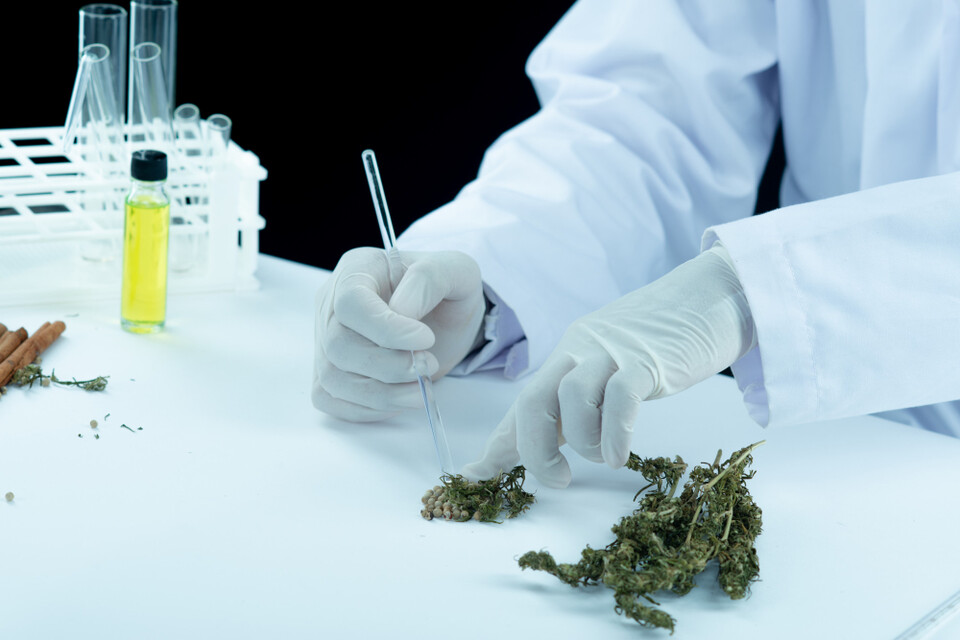How To Use Medical Marijuana To Manage Different Kinds Of Pain
Medical marijuana for pain management in Massachusetts has become a promising alternative for various types of pain. With its increasing popularity, understanding its components, methods of consumption, and legal considerations is vital. For individuals who want to know how medical marijuana can help manage pain, we’ll provide you with the information you need to make informed decisions.
Table of Contents
- Chronic Pain
- Neuropathic Pain
- Inflammatory Pain
- Cancer-Related Pain
- Methods of Consumption for Pain Relief
- Frequently Asked Questions (FAQs)
Legal Status of Medical Marijuana
✔ Chronic Pain: Medical marijuana can be a valuable option for managing chronic pain, offering potential relief with fewer side effects compared to traditional medications.
✔ Neuropathic Pain: Medical marijuana’s ability to modulate aberrant nerve signaling makes it a promising avenue for alleviating neuropathic pain.
✔ Inflammatory Pain: For those dealing with inflammatory pain conditions like Crohn’s disease and rheumatoid arthritis, medical marijuana’s anti-inflammatory properties can provide effective relief.
✔ Cancer-Related Pain: Medical marijuana offers hope for individuals facing cancer-related pain, providing not only pain relief but also potential relief from treatment-related side effects.
✔ Methods of Consumption for Pain Relief: Choosing the right method of consumption is crucial for tailoring your pain management strategy effectively, with options ranging from smoking and vaporization to edibles and topicals.
Chronic Pain
Chronic pain is not merely a physical sensation but also an emotional and psychological burden. It often leads to a decreased ability to perform daily activities, sleep disturbances, and a diminished overall quality of life. Individuals with chronic pain may experience depression, anxiety, and social isolation as a result of their condition.
Common Causes of Chronic Pain
- Arthritis: Arthritis is one of the most common causes of chronic pain. It refers to the inflammation of one or more joints and can lead to persistent pain, stiffness, and reduced mobility. Medical marijuana’s anti-inflammatory properties make it a potential treatment option for arthritis-related pain.
- Fibromyalgia: Fibromyalgia is a chronic condition characterized by widespread musculoskeletal pain, fatigue, and tenderness in specific areas of the body. Patients with fibromyalgia often struggle with chronic pain management, and medical marijuana may offer relief through its pain-alleviating effects.
- Back Pain: Back pain is a prevalent form of chronic pain that can result from various underlying causes, such as muscle strain, herniated discs, or spinal conditions. The versatility of medical marijuana consumption methods allows patients to tailor their treatment to their specific back pain symptoms.
How Medical Marijuana Alleviates Chronic Pain
- According to Medical News Today, medical marijuana has gained attention as a potential treatment for chronic pain, including pain due to nerve damage and inflammation, due to its interaction with the endocannabinoid system (ECS). The ECS plays a crucial role in regulating pain perception, and the cannabinoids in medical marijuana can modulate this system, leading to pain relief.
Benefits of Using Medical Marijuana for Chronic Pain.
- Pain Relief: Medical marijuana has demonstrated its effectiveness in alleviating chronic pain, making it a valuable option for those who have not found relief with traditional medications.
- Reduced Inflammation: Many chronic pain conditions involve inflammation of tissues or joints. Medical marijuana’s anti-inflammatory properties can help reduce this inflammation, leading to pain reduction.
- Fewer Side Effects: Compared to opioids and other pain medications, medical marijuana often has fewer side effects and a lower risk of addiction. This makes it a safer choice for long-term pain management.
- Improved Sleep: Chronic pain frequently disrupts sleep patterns. Medical marijuana can not only reduce pain but also promote better sleep, which is essential for healing and overall well-being. Dispensaries like EZMEDCARD can help you obtain medical marijuana to enjoy this benefit.
Neuropathic Pain
Neuropathic pain differs from nociceptive pain, which results from damage or injury to tissues such as muscles or bones. Instead, it originates from abnormal signals within the nervous system itself. This makes neuropathic pain particularly challenging to treat, as it may not respond well to traditional pain medications.
Common Causes of Neuropathic Pain
- Multiple Sclerosis (MS): Multiple sclerosis is a neurological disorder that can lead to nerve damage and disrupt the normal transmission of nerve signals. As a result, individuals with MS often experience neuropathic pain, such as burning or tingling sensations.
- Diabetic Neuropathy: Diabetes can damage peripheral nerves over time, resulting in diabetic neuropathy. This condition causes pain, numbness, and tingling in the extremities and can severely affect the quality of life for those living with diabetes.
- Nerve Injuries: Injuries to peripheral nerves, whether from accidents or surgical procedures, can also lead to neuropathic pain. This type of pain is often described as shooting or electric shocks and can persist long after the injury has healed.
How Medical Marijuana Alleviates Neuropathic Pain
According to the Centers for Disease Control and Prevention, medical marijuana is helpful in treating neuropathic pain. Its interaction with the endocannabinoid system (ECS) plays a significant role in reducing the abnormal signaling that characterizes neuropathic pain.
Targeting Aberrant Nerve Signaling
Neuropathic pain often arises from abnormal nerve signaling, where pain signals are sent to the brain even in the absence of a painful stimulus. Medical marijuana’s cannabinoids, particularly THC and CBD, have been shown to modulate this signaling, leading to a reduction in pain perception.
Benefits of Using Medical Marijuana for Neuropathic Pain
- Pain Relief: Medical marijuana in Massachusetts has demonstrated its effectiveness in reducing neuropathic pain, providing relief when other treatments may fall short.
- Improved Sleep: Neuropathic pain often disrupts sleep patterns. Medical marijuana can not only alleviate pain but also promote better sleep, contributing to overall well-being.
- Enhanced Quality of Life: By addressing both the physical and psychological aspects of neuropathic pain, medical marijuana can significantly enhance the quality of life for individuals living with this condition.

Inflammatory Pain
Inflammation is the body’s natural response to injury, infection, or irritation. It involves a cascade of biochemical processes that lead to increased blood flow, immune cell activation, and the release of signaling molecules called cytokines. While inflammation is a critical part of the body’s defense mechanism, chronic inflammation can result in persistent pain.
Common Causes of Inflammatory Pain
- Crohn’s Disease: Crohn’s disease is a chronic inflammatory bowel disease that can lead to inflammation and damage in the digestive tract. Individuals with Crohn’s disease often experience abdominal pain, diarrhea, and other symptoms due to inflammation.
- Rheumatoid Arthritis: Rheumatoid arthritis is an autoimmune disorder characterized by inflammation in the joints. This inflammation leads to pain, swelling, and joint damage, significantly impacting a person’s mobility and quality of life.
How Medical Marijuana Alleviates Inflammatory Pain
Medical marijuana has gained recognition for its potential to provide relief from inflammatory pain. Its interaction with the endocannabinoid system (ECS) plays a significant role in reducing inflammation and, consequently, pain.
Targeting Inflammation Through the ECS
The ECS is involved in regulating the immune response and inflammation. Cannabinoids found in medical marijuana, such as CBD (Cannabidiol), have demonstrated anti-inflammatory properties by modulating the ECS. This modulation can lead to a reduction in inflammatory responses and, consequently, a decrease in pain associated with inflammation.
Benefits of Using Medical Marijuana for Inflammatory Pain
- Reduced Inflammation: Medical marijuana’s anti-inflammatory properties make it a valuable option for individuals suffering from inflammatory pain. By targeting the root cause of pain, it can provide long-lasting relief.
- Pain Alleviation: Inflammatory pain is often accompanied by discomfort and reduced mobility. Medical marijuana can help alleviate pain, allowing individuals to regain their quality of life. Dispensaries like EZMEDCARD can help you get medical marijuana for pain relief.
- Improved Quality of Life: Chronic inflammation can lead to fatigue and a diminished sense of well-being. Medical marijuana’s potential to reduce inflammation can result in an improved overall quality of life for individuals with inflammatory pain conditions.

Cancer-Related Pain
Cancer-related pain can manifest in various forms, including bone pain, nerve pain, and soft tissue pain. It arises from a combination of factors, such as tumor growth, nerve compression, inflammation, and side effects of cancer treatments like chemotherapy and radiation therapy.
Common Causes of Cancer-Related Pain
- Tumor Growth: As tumors grow, they can exert pressure on nearby tissues, causing pain. Tumor-induced pain can be localized or radiate to other areas of the body.
- Nerve Compression: Tumors can compress nerves, leading to neuropathic pain characterized by shooting or burning sensations. This type of pain is common in cancers that affect the nervous system.
- Inflammation: Inflammatory responses triggered by cancer can lead to localized or widespread pain. Inflammatory pain can result from the release of cytokines and other pro-inflammatory substances.
How Medical Marijuana Alleviates Cancer-Related Pain
Medical marijuana in Massachusetts has gained recognition for its potential to provide relief from cancer-related pain. Its interaction with the endocannabinoid system (ECS) plays a significant role in reducing pain and addressing the underlying causes of cancer-related discomfort.
Targeting Pain Pathways Through the ECS
The ECS is involved in regulating pain perception, and cannabinoids in medical marijuana can modulate this system. By interacting with ECS receptors, medical marijuana can help reduce pain signaling, leading to relief from cancer-related pain.
Benefits of Using Medical Marijuana for Cancer-Related Pain
- Effective Pain Relief: Cancer-related pain can be severe and challenging to manage with traditional medications alone. Medical marijuana offers a potent and often more effective means of pain relief.
- Improved Quality of Life: Pain stemming from cancer and its treatments can negatively impact a person’s daily life and emotional well-being. Medical marijuana can enhance the overall quality of life by reducing pain and improving mood.
- Nausea and Appetite Management: In addition to pain relief, medical marijuana can help manage treatment-related side effects such as nausea and loss of appetite, contributing to better overall health.
Methods of Consumption for Pain Relief
When considering medical marijuana as a pain relief option, it’s important to understand the various methods of consumption available. Each method has its own set of advantages, disadvantages, and considerations. Dispensaries like EZMEDCARD offers various forms of consumption for their patients.
1. Smoking
Smoking is one of the most traditional and immediate methods of consuming medical marijuana. It involves inhaling the smoke produced when medical marijuana flowers or concentrates are ignited. This method is typically associated with quick onset but comes with certain considerations.
2. Vaporization
Vaporization is a smokeless method that involves heating medical marijuana to release cannabinoids and terpenes as vapor. This approach offers a smoke-free alternative while maintaining the benefits of rapid onset. Users inhale the vapor, which contains the active compounds, allowing for quick absorption through the lungs.
3. Edibles
Edibles encompass a wide range of products infused with medical marijuana. According to Health Central, there are various forms of edibles in the market including gummies, chocolates, and baked goods. When consumed, cannabinoids are absorbed through the digestive system, leading to slower onset but prolonged effects. This method typically results in a longer onset time compared to smoking or vaporization.
4. Tinctures and Oils
Tinctures and oils are liquid extracts of medical marijuana that can be consumed sublingually (under the tongue) or added to food or beverages. They offer a discreet and precise way to control dosage. Alternatively, they can be added to food or beverages for a slower onset but longer-lasting effects.
5. Topicals
Topicals are cannabis-infused creams, balms, or oils that are applied directly to the skin at the site of pain. They are non-psychoactive and provide targeted relief without any psychoactive effects. When applied to the skin, topicals interact with the endocannabinoid receptors in the skin and underlying tissues.
6. Capsules and Pills
Capsules and pills are solid forms of medical marijuana that can be swallowed, similar to traditional medications. They offer precise dosing and a convenient method of consumption. Capsules and pills are favored by those who prefer a discreet and familiar method of consumption.
7. Sublingual Sprays
Sublingual sprays are a relatively new method of medical marijuana consumption that involves spraying a liquid formulation under the tongue. This allows for quick absorption through the mucous membranes. This method provides a fast onset of effects and convenient dosing.
8. Inhalers
Inhalers are a smokeless and odorless method of medical marijuana consumption. They deliver a metered dose of medical marijuana as an aerosol spray, making it a discreet option. Users inhale the spray into their lungs, allowing for rapid absorption through the respiratory system. Inhalers are favored for their convenience and controlled dosing.

Use Medical Marijuana as Your Key to Effective Pain Management
If you or a loved one are struggling with chronic pain, neuropathic pain, inflammatory pain, or cancer-related pain, medical marijuana may offer a promising path to relief. EZMEDCARD connects eligible patients in Massachusetts with healthcare providers who specialize in medical marijuana evaluations. Contact us today to learn more about medical marijuana use.
FAQ
What conditions qualify for medical marijuana use in Massachusetts?
In Massachusetts, medical marijuana is legally available for various conditions, including chronic pain, cancer, multiple sclerosis, and more. However, the specific list of qualifying conditions may evolve, so it’s essential to check with the Massachusetts Department of Public Health for the most up-to-date information.
How do I obtain an EZMEDCARD recommendation in Massachusetts?
To obtain an EZMEDCARD recommendation in Massachusetts, you must first consult with a qualified healthcare provider who is authorized to recommend medical marijuana. If your healthcare provider believes medical marijuana is appropriate for your condition, they can issue a written recommendation. You can then apply for a medical marijuana card through the Massachusetts Medical Use of Marijuana Program.
Can I use medical marijuana if I'm already taking prescription pain medications?
Yes, in many cases, medical marijuana can be used in conjunction with prescription pain medications. However, it’s essential to consult with your healthcare provider to ensure there are no adverse interactions between medical marijuana and your existing medications. They can help you create a safe and effective pain management plan.
What are the potential side effects of using medical marijuana for pain management?
Common side effects of medical marijuana use may include dry mouth, dizziness, increased appetite, and changes in mood or cognition. It’s essential to start with a low dose and monitor your response carefully. If you experience severe or unexpected side effects, consult your healthcare provider.
Can I drive or operate heavy machinery while using medical marijuana?
Driving or operating heavy machinery while under the influence of medical marijuana can impair your coordination and reaction time, posing safety risks. It is generally recommended to avoid such activities until you understand how medical marijuana affects you personally. Always follow local laws and regulations regarding driving under the influence.
Can I travel with medical marijuana within or outside of Massachusetts?
Traveling with medical marijuana, especially across state or international borders, can be legally complex. In Massachusetts, you can legally possess and use medical marijuana, but it may not be permissible in other states or countries. Always research and adhere to the laws and regulations of your travel destination.
How do I choose the right strain of medical marijuana for my pain?
Choosing the right strain depends on your specific pain condition and personal preferences. Indica strains are often associated with relaxation and pain relief, while sativa strains may offer more energy and mood elevation. Hybrid strains combine characteristics of both. Consulting with a knowledgeable healthcare provider, especially one with an EZMEDCARD recommendation, can help you select the most suitable strain for your pain.
Are there age restrictions for medical marijuana use in Massachusetts?
Yes, there are age restrictions for medical marijuana use in Massachusetts. Patients under the age of 18 must have a designated caregiver and meet specific requirements to access medical marijuana. Adults aged 21 and older can use medical marijuana without a caregiver. Always verify the current age restrictions with the Massachusetts Medical Use of Marijuana Program.
Is medical marijuana covered by insurance?
As of now, medical marijuana is not covered by health insurance in Massachusetts or most other states. Patients are typically responsible for the cost of their medical marijuana products. However, this could change in the future as medical marijuana laws evolve.
Can I grow my own medical marijuana in Massachusetts?
Yes, Massachusetts allows registered medical marijuana patients to cultivate a limited number of marijuana plants for personal use. However, there are strict regulations and guidelines governing home cultivation, including plant limits and security measures. Be sure to familiarize yourself with the specific rules and requirements if you intend to grow your own medical marijuana.





